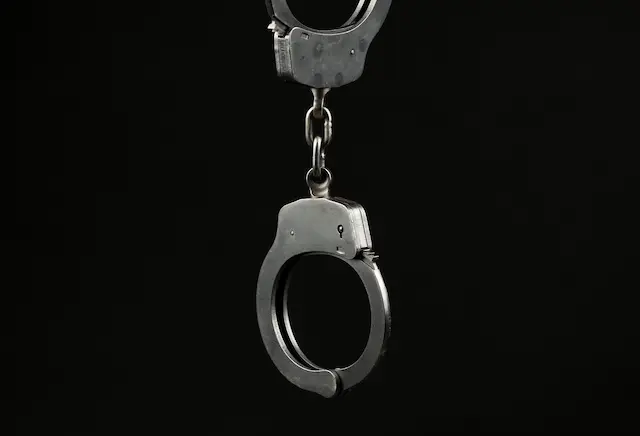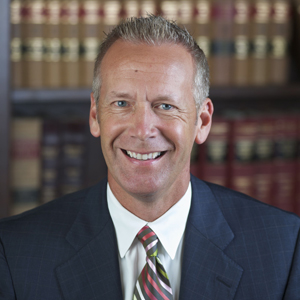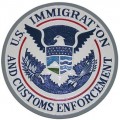Common Ways You Could Violate Probation and the Consequences You Face

Understanding the nuances of probation violations is critical in avoiding missteps and maintaining a positive trajectory toward rehabilitation. At Kirk, Kirk, Howell, Cutler & Thomas, LLP, our probation violation attorneys aim to empower our clients with the knowledge that will help them navigate this intricate legal landscape successfully. Whether you’re currently on probation, have a loved one in a similar situation, or simply wish to expand your legal knowledge, we are providing you with invaluable insights on probation violations.
What Is Probation in North Carolina?
Probation is a legal arrangement that allows individuals convicted of a crime in North Carolina to serve their sentences within the community, under certain conditions and supervision. It serves as an alternative to incarceration, giving offenders an opportunity to rehabilitate and reintegrate into society while being held accountable for their actions.
Unsupervised Probation
Unsupervised probation, also known as “unsupervised release,” is a form of probation that requires minimal supervision from probation officers. Individuals placed on unsupervised probation are expected to adhere to specific conditions set by the court, such as maintaining good behavior, avoiding further criminal activities, and complying with any specific instructions related to their case.
Unlike supervised probation, individuals on unsupervised probation do not have regular meetings with probation officers. However, they are still obligated to fulfill all the requirements imposed by the court. Failure to comply with the terms of unsupervised probation can result in a violation, leading to potential consequences such as the revocation of probation, additional penalties, or even prison time.
Supervised Probation
Supervised probation is a more structured form of probation that involves regular monitoring and supervision by probation officers. Individuals placed on supervised probation must regularly meet with their probation officers, who assess their progress, provide guidance, and ensure compliance with the conditions set by the court. The specific terms and conditions of supervised probation may vary depending on the nature of the offense and the individual’s circumstances.
Common conditions include:
- Attending counseling or rehabilitation programs
- Submitting to drug or alcohol testing
- Maintaining employment or educational commitments
- Adhering to curfews or travel restrictions
What is the Role of a Probation Officer?
Probation officers play a crucial role in overseeing the progress of individuals on supervised probation. They conduct regular meetings, review compliance with court-ordered conditions, and provide assistance and resources to support the rehabilitation process. Any failure to comply with the terms of supervised probation can result in probation violation charges, which may lead to harsher penalties, including the possibility of serving time.
Common Probation Violations
When individuals are placed on probation, they must adhere to specific conditions and requirements set by the court. However, unintentional or deliberate actions can lead to probation violations, potentially jeopardizing their probationary status and subjecting them to severe consequences.
Missing Appointment with a Probation Officer
Regular meetings with probation officers are a fundamental aspect of supervised probation. Failure to attend these appointments, whether due to forgetfulness or other reasons, can be considered a violation. Such negligence can undermine the trust between the probationer and the court, leading to potential consequences such as probation revocation, extended probation terms, or additional penalties.
Missing a Court Hearing
Court hearings are essential events that individuals on probation must attend. Failing to appear in court, whether for progress updates or related legal matters, can have severe repercussions. It may result in contempt of court charges, probation revocation, or the issuance of a warrant for arrest. It is crucial to prioritize court hearings and communicate any scheduling conflicts with your criminal defense attorney or probation officer.
Failing to Pay Fines or Restitution
As part of the probation conditions, individuals are often required to pay fines or restitution to victims. Neglecting these financial obligations can result in probation violations. The court takes non-payment seriously, potentially leading to additional penalties, increased fines, or even modification of the probation terms.
Not Completing Community Service Hours
Community service is a common requirement during probation, serving as a way for individuals to give back to the community. Failure to complete the designated community service hours can result in probation violations. Consequences may include extended probation periods, increased community service hours, or even probation revocation, depending on the circumstances and the court’s discretion.
Visiting Certain Places or People
In some cases, probation conditions may restrict individuals from visiting specific locations or associating with certain individuals, such as known criminals or places associated with illegal activities. Violating these restrictions can be considered a serious probation violation, leading to consequences that may include increased supervision, modified probation terms, or even probation revocation.
Unemployment
Maintaining steady employment is often a requirement of probation. The court expects individuals to actively seek and maintain gainful employment as part of their rehabilitation. Failing to secure and retain employment can be seen as a violation, potentially resulting in increased scrutiny, extended probation, or the need to provide alternative forms of productive engagement.
Committing Another Crime
Engaging in further criminal activity while on probation is one of the most significant violations. Committing a new offense undermines the trust placed in individuals by the court and jeopardizes their chance at rehabilitation. The consequences can be severe and may include probation revocation, imprisonment, or more stringent penalties related to the new criminal conviction.
Technical Violation of Probation in North Carolina
In North Carolina, a technical violation of probation refers to a situation where an individual on probation fails to comply with specific conditions of their probation, rather than committing a new criminal offense.
What are Technical Violations?
Technical violations can vary in nature and may include actions such as:
- Missing appointments with a probation officer
- Failing to pay court costs or restitution
- Not completing required counseling or rehabilitation programs
- Violating travel restrictions or curfews
Consequences You Could Face for Violating Probation
When an individual violates probation, whether through a technical violation or by committing a new criminal offense, they can face a range of consequences at their probation violation hearing, depending on the severity of the violation and the discretion of the court. These consequences are intended to hold the individual accountable for their actions and to encourage compliance with the terms of probation.
Possible outcomes may include:
- Increased supervision
- Modified probation terms
- Additional community service hours
- Additional criminal charges
- Mandatory counseling or treatment
- Warrant for arrest
- Probation revocation
If probation is revoked, the individual may face the possibility of being sent back to jail or prison to serve the original sentence that was suspended.
If You’re Facing Charges of Probation Violation, Contact the Attorneys at Kirk, Kirk, Howell, Cutler & Thomas Today
Dealing with charges of violating the terms of your probation can be a daunting and overwhelming experience. The consequences of such violations can have a significant impact on your life, liberty, and future prospects. That’s why it’s crucial to have a skilled and experienced legal team on your side.
At Kirk, Kirk, Howell, Cutler & Thomas, LLP, our probation violation defense attorneys understand the complexities of probation laws throughout North Carolina and have a proven track record of providing effective legal representation to clients facing probation violation charges. Our dedicated team of attorneys is committed to protecting your rights, advocating for your best interests, and guiding you through the legal process with compassion and expertise.
Call us today at (919) 615-2473 or fill out the form below for a complimentary case review.













